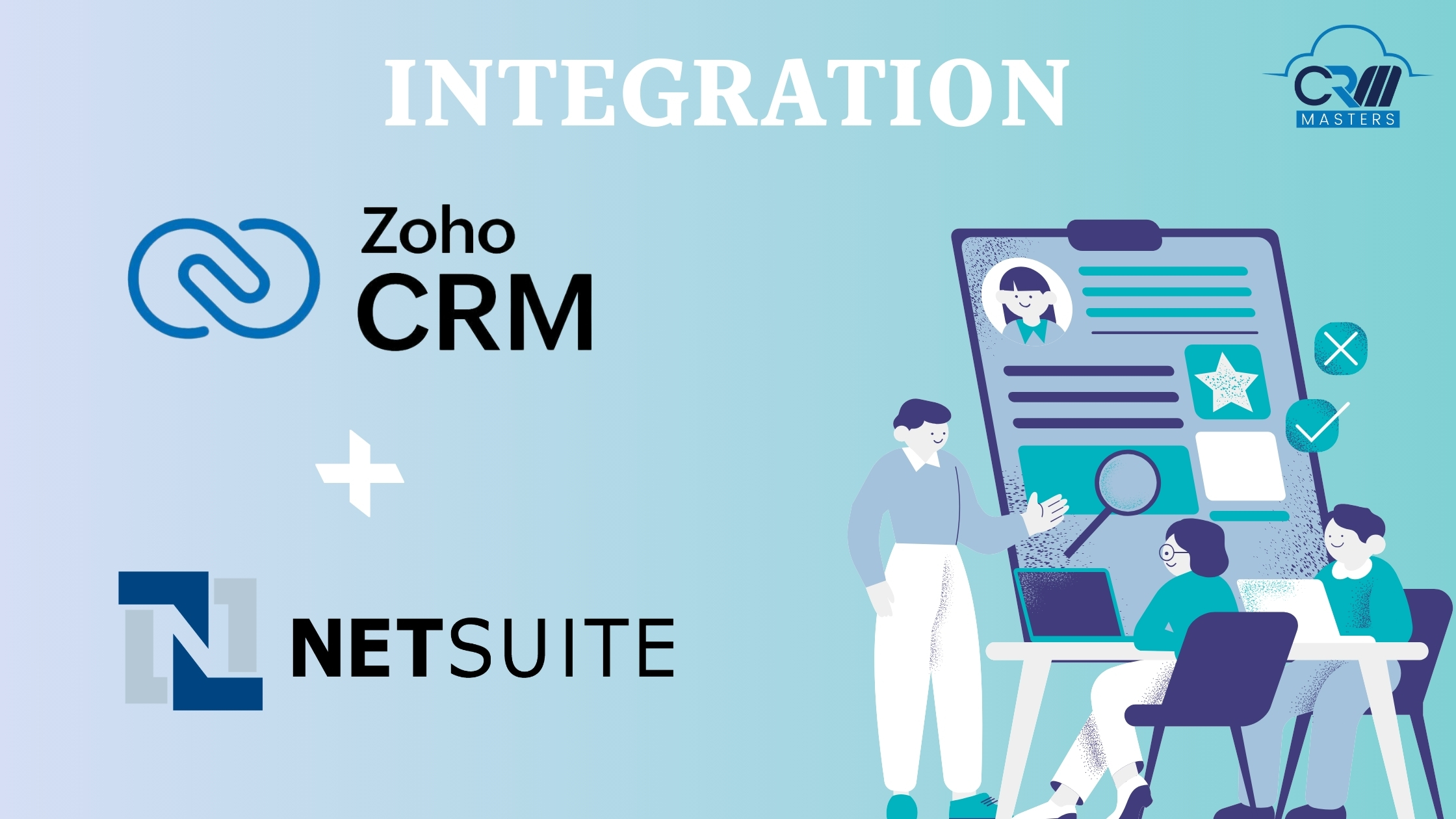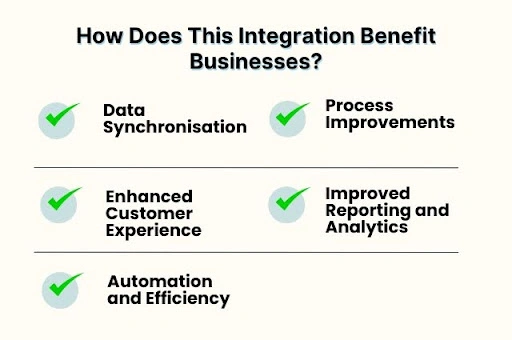
Zoho CRM and NetSuite Integration: How It Helps Businesses
Almost every business now relies on a variety of software solutions to manage their operations, finance processes, and customer relationships. Zoho CRM and NetSuite are two powerful platforms that serve different purposes in fulfilling business needs.
Zoho CRM is known for its great Customer Relationship Management (CRM) capabilities. At the same time, NetSuite is a leading cloud-based Enterprise Resource Planning (ERP) that covers supply chain management, financials, and other core business functions.
To understand the distinct advantages of ERP & CRM and how they complement each other, you can explore more in our detailed blog on its Benefits and Comparison.
This blog helps you understand the benefits of this integration and how it will help your business. Let’s first understand why should businesses have integrated Zoho CRM and NetSuite systems.
How Does This Integration Benefit Businesses?

While both Zoho CRM and NetSuite are powerful on their own, integrating them can unlock new productivity and efficiencies.
Listed below are a few reasons that may be sufficient for you to make the decision:
1. Data Synchronisation:
In many organizations, sales, and finance team work in silos, leading to data inconsistencies and miscommunications. Integrating Zoho CRM with NetSuite.
2. Process Improvements:
Businesses often face challenges when trying to manage multiple systems for different functions. With the integration, processes like order management, invoicing, and customer service can be streamlined, as data flows seamlessly between the two platforms.
3. Enhanced Customer Experience:
When sales, customer service, and finance teams have access to the same up-to-date information, they can provide better and more personalized service to customers. This integration ensures that customer data is always accurate, enabling teams to respond to inquiries and resolve issues more efficiently.
4. Improved Reporting and Analytics:
Integrating Zoho CRM with NetSuite allows businesses to generate comprehensive reports that combine data from both platforms. This holistic view enables better decision-making and helps businesses identify trends, forecast sales, and manage financials more effectively.
5. Automation and Efficiency:
Integration allows for the automation of repetitive tasks, such as data entry, order processing, and invoicing. This not only saves time but also reduces the likelihood of errors, enabling teams to focus on more strategic activities.
Also Read: How to Setup Zoho CRM in Easy Steps
Key Benefits of Zoho CRM and NetSuite Integration
The integration of Zoho CRM and NetSuite offers several key benefits that can help businesses achieve their goals more effectively.
Let’s explore some of these benefits in detail.
-
Access Complete Customer Data
One of the most significant advantages of integrating Zoho CRM with NetSuite is the ability to create a unified view of customer data. When customer information from Zoho CRM is combined with financial and transactional data from NetSuite, businesses gain a 360-degree view of their customers.
This holistic perspective allows businesses to better understand customer behavior, preferences, and purchasing patterns, leading to more targeted marketing efforts and improved customer satisfaction.
-
Streamlined Order-to-Cash Process
The order-to-cash process, which includes everything from order management to invoicing and payment collection, is critical to the success of any business. Integrating Zoho CRM with NetSuite streamlines this process by ensuring that orders captured in Zoho CRM are automatically transferred to NetSuite for fulfillment and billing.
This eliminates the need for manual data entry, reduces the risk of errors, and speeds up the entire process, resulting in faster revenue recognition.
-
Enhanced Sales and Marketing Alignment
Sales and marketing teams often work closely together to drive revenue, but misalignment between these departments can lead to missed opportunities. With Zoho CRM and NetSuite integration, sales and marketing teams have access to the same data, enabling them to collaborate more effectively.
Marketing can use data from NetSuite to target campaigns more accurately, while sales can leverage insights from Zoho CRM to close deals faster.
-
Improved Inventory Management
For businesses that manage physical products, inventory management is a critical function. NetSuite’s robust inventory management capabilities are enhanced when integrated with Zoho CRM. Sales teams can view real-time inventory levels directly within Zoho CRM, enabling them to provide customers with accurate information about product availability.
This integration also helps prevent stockouts and overstock situations by ensuring that inventory data is always up-to-date.
-
Better Financial Management
Integrating Zoho CRM with NetSuite gives businesses better control over their financial processes. Sales data from Zoho CRM is automatically transferred to NetSuite, where it can be used for financial reporting, forecasting, and budgeting.
This seamless flow of information helps businesses maintain accurate financial records, reduce the risk of discrepancies, and make more informed financial decisions.
-
Scalability and Flexibility
As businesses grow, their needs evolve, and so do their software requirements. The integration of Zoho CRM and NetSuite offers scalability and flexibility, allowing businesses to adapt to changing circumstances without disruption.
Both platforms are highly customizable, and the integration can be tailored to meet the specific needs of the business, whether it’s expanding into new markets, launching new products, or managing a larger customer base.
Get a Professional Help
Zoho CRM and NetSuite integration offer businesses a powerful combination that drives efficiency, improves customer satisfaction, and enhances overall business performance.
If you are ready to take the next step, CRM Masters Infotech can help ensure a smooth and successful integration. With our team of 75+ professional developers, you can fully harness the power of these powerful platforms and achieve your business goals.












